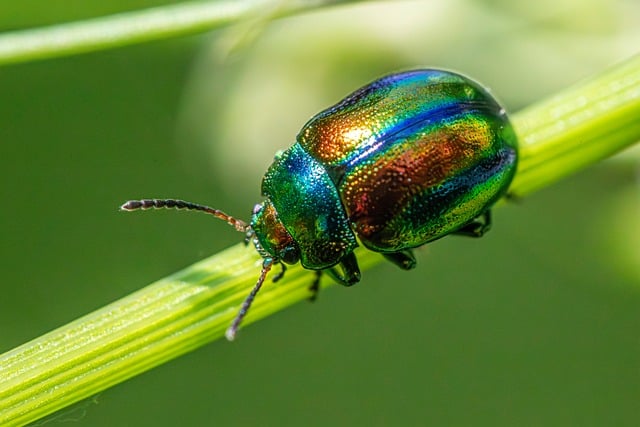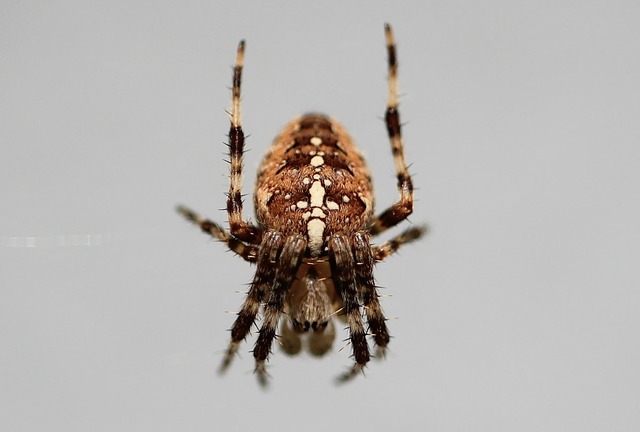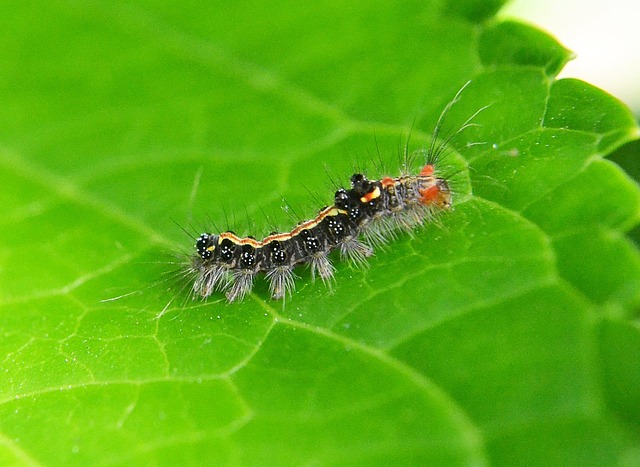Mosquitoes in Littleton home gardens breed rapidly in standing water, but understanding their life cycle allows for effective organic pest control. Key strategies include eliminating breeding sites, maintaining hygiene, using natural repellents like citronella and lavender plants, and introducing beneficial insects. Organic methods provide an eco-friendly and safe approach to mosquito reduction, creating inviting outdoor spaces without harming the environment or human health. In Littleton, sustainable mosquito management combines these organic techniques with collaborative efforts to significantly reduce populations and promote a healthier environment.
Mosquitoes are more than just a nuisance; they pose health risks, especially with vector-borne diseases on the rise. For homeowners in Littleton, understanding and managing mosquito populations is crucial. This article guides you through an effective approach to mosquito reduction using organic pest control methods tailored for home gardens. By exploring behavioral patterns and implementing sustainable practices, we aim to provide practical insights into creating a mosquito-free haven in your backyard, ensuring both safety and an enjoyable outdoor space.
- Understanding Mosquitoes: Behavior and Breeding Patterns in Home Gardens
- Organic Pest Control Methods for Effective Mosquito Reduction
- Implementing and Maintaining a Sustainable Mosquito Management Program in Littleton
Understanding Mosquitoes: Behavior and Breeding Patterns in Home Gardens

Mosquitoes are more than just a nuisance; they’re pests that can breed rapidly in standing water around your home garden. Understanding their behavior and breeding patterns is crucial for implementing effective organic pest control strategies in Littleton. These insects go through four life stages: egg, larva, pupa, and adult. Female mosquitoes lay their eggs in stagnant water, from which larvae emerge after a few days to feed on organic matter. Once they mature into pupae, they float on the surface before transforming into adults capable of flying and seeking blood meals.
Identifying and eliminating potential breeding sites is a key aspect of organic pest control for home gardens. This includes emptying or treating flowerpots, buckets, old tires, and birdbaths regularly. Maintaining proper garden hygiene and ensuring good drainage can significantly reduce mosquito populations. Organic solutions like citronella plants, lavender, and marigolds are known to repel mosquitoes naturally, providing a safer alternative to chemical treatments.
Organic Pest Control Methods for Effective Mosquito Reduction

In the quest for effective mosquito reduction, especially in residential areas like Littleton, organic pest control methods offer a safe and eco-friendly alternative to chemical-based solutions. For homeowners looking to create an inviting outdoor space free from mosquito nuisance, adopting organic practices is a game-changer. Organic pest control focuses on utilizing natural substances and beneficial insects to manage and reduce mosquito populations without harming the environment or human health.
One of the key strategies involves planting mosquito-repelling plants in gardens and outdoor spaces. Certain herbs like citronella, lavender, basil, and marigolds are known for their natural ability to deter mosquitoes. Creating a fragrant garden landscape not only adds aesthetic appeal but also serves as a natural defense against these pesky insects. Additionally, introducing beneficial insects such as dragonflies and ladybugs can significantly reduce mosquito populations as they feed on the larvae and adults alike. Organic pest control for home gardens in Littleton provides a sustainable solution that respects the balance of nature while ensuring a comfortable outdoor experience.
Implementing and Maintaining a Sustainable Mosquito Management Program in Littleton

In Littleton, implementing a sustainable mosquito management program involves a multi-faceted approach that combines organic pest control methods with environmental stewardship. Home gardeners can play a significant role in reducing mosquito populations by adopting eco-friendly practices such as eliminating standing water—a crucial breeding ground for mosquitoes—and introducing beneficial insects like dragonflies and damselflies which naturally prey on them. Organic solutions, including natural repellents and plant-based pesticides, offer an effective yet non-toxic alternative to conventional methods, ensuring the safety of pets, children, and local wildlife.
Maintaining such a program requires regular monitoring and proactive measures. Homeowners should inspect their properties for potential water sources that could foster mosquito breeding, such as clogged gutters or discarded containers. Collaborative efforts with neighbors and local community groups can further enhance the program’s impact by creating a more extensive network of mosquito-free zones. By embracing organic pest control for home gardens in Littleton, residents not only contribute to a healthier environment but also enjoy outdoor spaces free from these pesky insects.
Mosquitoes pose a significant challenge for homeowners, but with an understanding of their behavior and effective organic pest control methods, it’s possible to create a sustainable mosquito management program. By implementing natural solutions tailored to Littleton’s specific needs, residents can enjoy outdoor spaces free from these pesky insects. Organic pest control for home gardens in Littleton offers a safe, eco-friendly approach that benefits both the environment and individual well-being, providing a peaceful and comfortable living space without compromising health or nature’s balance.
